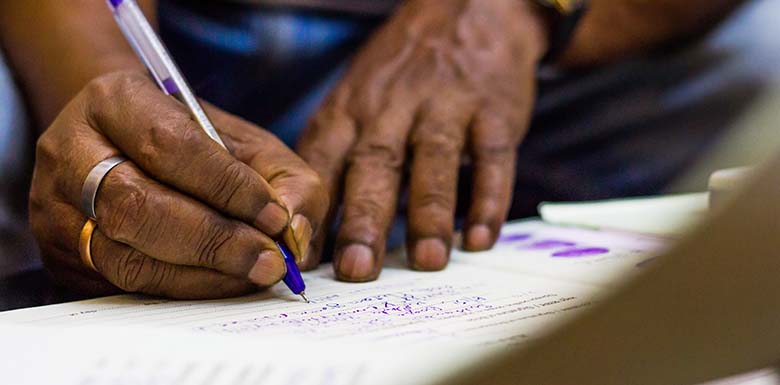
Whether you are single, married, childless, or have several children, it is crucial to have a will in place. No one can prepare for the unexpected, and no matter what stage of life you are in, having a will is of utmost importance. Here are some top reasons why drawing up a will in North Carolina may be in your best interests and that of your family.
Why Should You Have a Will?
Having a will can help ensure that your assets are distributed as you wish upon passing. This includes your most valuable possessions, checking and savings account balances, real estate, and other valuable assets or investments. With a will, you have an opportunity to designate beneficiaries to these assets.
Whether you have children, are single, or are married, having a will in place is essential if you hope to avoid leaving your estate to be dispersed according to the intestacy laws of North Carolina.
Additionally, having a will in place could be of utmost importance in instances where you are not married. You might assume that your partner will be left your assets upon your passing. Still, without a will, the state of North Carolina will follow intestacy laws, which do not allow any assets to be distributed to non-blood or non-married relatives.
What Happens When You Die Without a Will?
Dying without a will in North Carolina is referred to as dying intestate. Here, instead of your assets and debts being distributed to your surviving family members, or however you decide, the probate court will be required to appoint an executor of your estate for the probate process and distribute your assets according to the intestacy laws of North Carolina, even if that would result in individuals inheriting from your estate that you would have otherwise disinherited.
Therefore, even if they are under the impression that they would have wanted certain family members, close friends, or relatives to be awarded certain assets without a will, the estate administrator must adhere to the State intestacy laws.
According to the law, specific family members are entitled to inherit a decedent’s estate when they pass away without a will. According to the North Carolina Intestate Succession Act, the following parties have the authority to receive an inheritance when a family member dies intestate:
- If you have one child and a spouse but pass away without a will, your spouse will be entitled to the first $30,000 in personal property assets. In contrast, the remaining personal property assets and all of your real estate will be spent equally between your children and your spouse.
- If you had two or more children and a spouse, but you pass away without a will, your spouse will be entitled to the first $30,000 in personal property assets. They will also be entitled to 1/3 of the remaining personal property assets and 1/3 of your real estate. Your children will divide the remaining real estate and personal property assets equally.
- If you have no children, a spouse, and one or both of your parents are living, but you pass away without a will, your spouse will be entitled to the first $50,000 worth of your personal property assets. However, the remaining value of your personal property assets, and all of your real estate assets, will be divided equally between your spouse and your surviving parents.
- If your parents are not alive, you have no children, and you are married, but you pass away without a will, your spouse will be entitled to all of your personal property and real estate assets.
- If your parents are alive, you have no children, and you were not married, but you passed away without a will, all of your personal property and real estate assets will be divided equally between your parents.
- If your parents are deceased, you do not have a surviving spouse, but you have children, all of your real estate and personal property assets will be divided equally among your children.
If you pass away without a will and do not have any surviving children, spouse, or parents, distant surviving family members may be entitled to your estate. However, without any surviving family members, your estate could default into escheat, which means the state of North Carolina will retain possession of your assets and have the authority to use them as they see fit.
Why Should Those With Spouses & Children Especially Have a Will?
Having a will in place is especially important if you are married and have children. If you were to die without a will, it is important to assign beneficiaries and heirs to protect your minor children accordingly. You will also want to ensure that you name guardians to care for your children in the event that you or your spouse passes away.
If you do not have a will despite being married, your spouse is still not entitled to the entirety of your estate if you have surviving children, parents, or other family members. If you hope to ensure your children or spouse are awarded 100% of your personal property and real estate assets, having a will in place is critical.
Contact a North Carolina Estate Planning Attorney For Help Today
If you do not currently have a will in place, you risk dying intestate. This could have tremendous negative implications for your family. Take steps to protect your family’s future by drawing up a will.
Contact experienced estate planning attorney Ryan Stump to learn more about what details you should be sure to include. Fill out our secure contact form or call us at (704) 766-8836 to schedule your confidential case evaluation as soon as today.
View All Blogs



